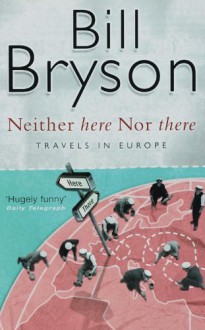
The thing that really struck me with this book was how annoying it would have been traveling in Europe back in the late 80s and early 90s (or even earlier). Okay, automatic teller machines were starting to appear, but it wasn’t like now where you basically had a common currency over much of the continent, nor do you have to load yourself up with traveler's cheques to make the journey. In fact I have never seen a traveler’s cheque in my life. Sure, I have heard of them, especially the famous American Express ad:
‘Mr Wong, Mr Wong, I’ve lost all my traveler’s cheques’;
‘oh, what kind where they’.
All I can say is that I felt sorry for anybody with the name Wong in the telephone book because no doubt they would gets lots of prank phones calls, and you pretty much work that out when you are the one making the prank phone call and the response is ‘and f**k you too!’. But seriously (yes, I was young once), when I first decided to leave the country and explore the world it was 2011, which meant that we had smart phones and google maps, it was nowhere near as frustrating, and I certainly wasn’t wandering around blind. Okay, on my first trip I didn’t have any internet access, so I was reliant upon a road map when we were driving, tourist maps when we were in a city, and basically stumbling around with my eyes bulging out at seeing Venice in the flesh.
The thing about travel is that it is addictive, and a book about traveling around Europe brings out the part of me that wants to say ‘stuff this, I’m out of here’. In fact I did do that once, and jumped on a plane to London simply to go and watch a live performance of Les Miserable (I had just seen the film, and staring at the poster while wandering through the London Underground just made me want to see it all the more). Fortunately that second, and third, time I did work out that the best way to deal with the internet problem is to buy simcards over there, and I have to admit that Vodafone turned out to be a life saver – namely because I ended up buying one in the Netherlands and using it for the next three weeks as I wandered around Belgium, Luxembourg, and the Pas de Calais.
However, it must have been a pain in the neck having to change currencies every time you crossed the border, though my understanding was that traveler’s cheques solved that problem by being accepted wherever you go – though I suspect that you later had to cash them at a Bureau de Change, and then change currencies whenever you went into another country. Mind you, crossing from France to Switzerland, Germany to Czechia (Czech Republic), and France to England proved headaches enough, especially in Czechia where it was impossible to actually work out what the value of the money actually was. In Hong Kong I simply divided the price by 10, in the Eurozone I multiplied it by three quarters (or just hazarded a guess) and in England I basically doubled the price.
Another really interesting aspect to this book is when it was written. Apparently when Bryson went backpacking with his friend in the early seventies he was able to pass into the Eastern bloc, namely Yugoslavia and Bulgaria. Mind you the stories that he tells of his experience in Sofia makes you wish you were young, American, and backpacking through the Eastern Bloc in the Early Seventies. However things had changed, and Bryson was pretty fortunate that he was able to go there when he did because within a couple of years Yugoslavia would explode into a massive war. As for Bulgaria, he got to witness the breadlines first hand, though his comment about walking into his hotel and having a full buffet available is rather interesting. In fact it is also noticeable that it appears that only foreigners were even allowed in the hotel. As he said, it is surprising that he simply wasn’t mugged because it was pretty obvious that he was American, and quite a wealthy one at that (he followed in his father’s footsteps and became an editor in a London newspaper).
I could write a lot more on this book, namely sharing my experiences in 2011 with Bryson’s in 1991, however I think I will leave that for my blog (which you can find the link here). Mind you, if you are interested in reading about my travels there is always my travel blog, and one of the main reasons that I went to Europe in 2016 was to actually have something to write about that didn’t involve suburbs in Australian cities. However, one thing that I should mention before I sign off, is how Bryson mentioned that with the collapse of Communism, tourism was only going to get worse – however it wasn’t something I noticed. In fact I suspect that what it has done is not so much brought more tourists from the Eastern Bloc – they still happen to be quite poor compared to the rest of Europe, but it has actually opened Eastern Europe to tourism.

 Log in with Facebook
Log in with Facebook 







